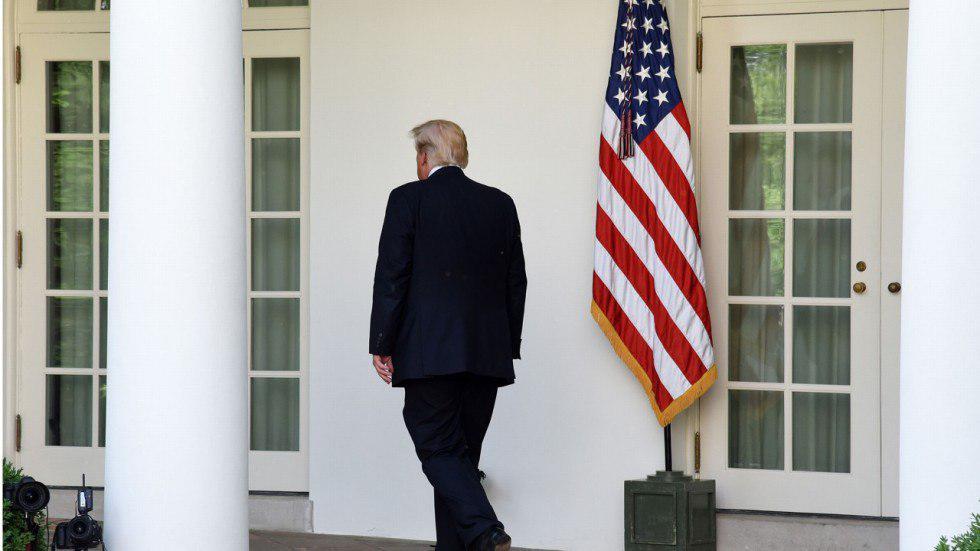PARIS, June 2 (Xinhua) -- In political observers' eyes, the U.S. withdrawal from the Paris climate agreement, announced Thursday by President Donald Trump, does not come as a surprise.
Yet they believed that beyond the emotions and the shock caused by the widely condemned decision, the U.S. withdrawal should not call into question the worldwide dynamic established in the fight against climate change.
This is even more the case as the leader of the world's second-largest polluter is meeting with strong opposition, not only on the global scale, but also within his own country.
Marie-Cecile Naves, a researcher specializing in U.S. studies at the French Institute for International and Strategic Affairs (IRIS), said the U.S. president has made this decision for strategic reasons related to internal politics.
"He was elected on a posture, an ideology of 'alone against everyone.' We expected it, we had some important signals with the calling into question of (former U.S. President Barack) Obama's 2015 Clean Power Plan with the relaunch of construction of the pipeline, with the cut in the federal budget for international development aid," she said.
The U.S. president decided to back out of commitments of his predecessor Obama, who had set a reduction target in greenhouse gases at 26 to 28 percent by 2025 compared to 2005 as part of the historic agreement reached in December 2015 in Paris. Trump is also calling into question the U.S. financing of green funds for climate change measures.
"After weeks of intense negotiations between his counselors for and against, the American president has dug in. It is no surprise in his positioning as the American president in the sense that, for him, climate change is a big joke," said Jean-Eric Branaa, professor of American politics at the University of Paris II.
"It is actually difficult to know the deep convictions of the president on the subject. It is even possible that he has none. We must therefore content ourselves with the formulated statements of his entourage, largely made up of proud climate-change skeptics," said the professor.
The Paris Agreement was agreed by the 196 member economies that attended the 21st session of the Conference of the Parties (COP21) to the UN Framework Convention on Climate Change (UNFCCC) 2015 in Paris.
According to David Levai, director of the climate program at the Institute of Sustainable Development and International Relations, though this announcement remains "a very negative signal" which "makes the dynamic unleashed by COP21 more fragile," the Paris agreement should hold.
"The other countries have shown their commitment, we saw it during the negotiations in Bonn and at the G7," Levai said.
On Friday, the heads of state of France, Germany and Italy reaffirmed in a joint declaration their commitment "to implement the Paris agreement, including its climate financing objectives."
"We believe that the momentum created in Paris in December 2015 is irreversible and we firmly believe that the Paris agreement cannot be renegotiated, since it is a vital instrument for our planet, businesses and economies," said the authorities of France, Germany and Italy. Similar sentiments were shared by Britain, Belgium and other European countries.
"There will not be a domino effect," said Pierre Cannet, the climate and energy manager at the World Wildlife Fund.
"We have known for months that there was this risk. We have seen China and India take the lead, meetings are happening without the United States," he noted.
"In reality, Trump is more taking the risk to find himself facing a wall and to isolate himself," he said.
"This announcement at least has the merit of clarity. From this point of view, it's rather a gift from Trump to the negotiators," said Christian de Perthuis, an economics professor at the University of Paris-Dauphine, and president of the scientific advisory board to the Climate Economics Chair.
"In this context, China becomes the country which will carry the Paris Agreement, the central player. We have often given an extremely false image of China in international negotiations, accusing it of being a big polluter. However, it has never reached the United States' level of per capita CO2 emissions and has committed itself to a major change of orientation," Perthuis said.
The U.S. withdrawal from the Paris Agreement does put into question the financing of green policies in the fight against global warming, particularly those dependent on U.S. funds, but the decision in Washington should not weigh too heavily on global efforts to limit greenhouse gas emissions, observers believed.
